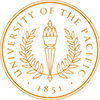Studying abroad can be an exciting experience for many students. You meet new people, get to live in another country, and experience another culture.
Other students have the opportunity to take part-time jobs while studying abroad.
However, how does working abroad affect one’s experience as a foreign student? Also, is it good for students to have part-time jobs?
Moreover, in case you want to pursue it, how do you find a job abroad?
Read on to find out the answers to those questions.
Pros and Cons of Working Part-Time
Should students have a part-time job?
The answer depends on the student.
Just like any other choice, there are pros and cons when you get a part-time job as a student, especially abroad.
On one hand, there are many benefits to working part-time while studying. For students eligible for this opportunity, it is another chance to maximize their experience. For example, assimilation is easier because of the exposure to the local populace, and it helps international students build new skills useful while studying and after graduating.
However, like with most things, there are also some disadvantages to it. Here’s a list of some of the pros and cons of working part-time abroad.
Pros of Working Part-Time
You Earn Extra Money
Students who are eligible to work can earn extra money to make their stay in another country more fun. They can eat in local restaurants and experience local delicacies, and travel to other parts of the country. For some, it is a great way to start saving while still young.
Moreover, it is not a secret that studying abroad can cost students a lot. Thus, for other students, earning extra money helps them finance and continue their studies.
Networking
One of the advantages of working in another country is the chance to build your network. Students will find out how important networking is in their life, especially after they graduate. Having a strong and vast network ensures you gain insight into various trends and insider information in various sectors. You can even meet prospective clients, collaborators, and even mentors to push you up into your chosen career and field.
You Learn Time Management Skills
Working while studying develops students’ life and work skills that usually take time to learn in schools. One example is time management. Working efficiently and knowing which tasks to prioritize is just one of the most important traits employers of graduate jobs look for in their employees.
Cons of Working Part-Time
Lack of Time for Other Things
One of the cons of working while studying is the lack of time to do other things, such as hanging out with friends and traveling. Students also have fewer hours of studying due to exhaustion. To avoid these, students should make sure that the job they get won’t get in the way of their study and school schedules.
Limited Choices for International Students
Some students may find that the type of jobs they can take on is limited. Many host countries and academic institutions have rules on the types of jobs and the number of times students can work to avoid neglecting their studies. Some of the usual and popular jobs for students involve working on-campus, waiting at restaurants and bars, tutoring and translation work, or working at the office through internships.
May Not Be Relevant to the Student’s Field of Study
Depending on the institution or a country’s regulations, there might be cases where some part-time jobs that students get are not related to their field of study. For some, this is a disadvantage, as they might not be able to use the knowledge they acquire for their dream jobs.
How Do You Get a Job Abroad?
Working part-time while studying abroad can be exciting. It’s also a once-in-a-lifetime experience. However, for students, how do you get a job abroad, where do you start, and what are some tips to increase your chances of getting one?
Write an Impressive Resume or CV
The first thing employers see when you are applying for a job is your resume or CV. Thus, be sure to create an impressive one and stand out among your competitors.
If you don’t know how to write one, you can ask for help from your institution’s career office or international student office.
Another way to stand out is by tailoring your CV to the needs of the company you want to work for.
Ask for Help
As a foreign student, there may be a lot of processes and information that will seem confusing for you, such as getting a working permit and other work requirements.
Fortunately, there are a lot of people you can go to for help. From your institution, you can ask the international student office or your career department. Aside from writing a good CV, they can also help directly or refer you to job openings available in your institution, your school’s partner organizations, and other trustworthy companies.
If you have been working with an education agent, it’s also best to ask for help from them. They can help you the best when it comes to visa and permit-related information and processes.
Check Out Job Listings
You can also look for a job on your own. Be sure to check out online job listings to search for jobs around your area.
You can also check out your school’s bulletin board for job listings every now and then.
If you want to increase your chances of getting a job, be sure to check out job listings before the peak job-hunting season starts to avoid more competitors. In most cases, for foreign students, it starts at the beginning of the school year. Thus, be sure to start looking for a job before it starts.
Be Open-Minded
Some part-time job options for foreign students can be limited.
It may depend on the country, its current laws and rules, or the student’s work permit type.
Thus, if you are eligible to get a part-time job, be sure to have an open mind. This means not limiting yourself to just one type of job.
For example, your situation may only allow you to work at your institution. In some cases, your schedule may only allow you to choose from certain types of jobs.
Do Your Research
Do your own research about your potential employer. Learn about the company’s values, mission, and goals, and its clients and needs. This way, it will be easier for you to align your skills and experience to what the company needs. Moreover, this can also help you increase your confidence during interviews.
Dress Smart During Your Job Interview
Before your job interview, it’s important that you prepare well, this includes doing your research about the company.
However, during your job interview, aside from your knowledge, it’s also important that you look smart and confident. Thus, be sure to dress smart.
Sometimes, no matter how good you are, and no matter how impressive your CV is, if you don’t look like you are competent based on your looks, the employer might get the wrong impression of you and not hire you.
Thus, dress smart, greet the interviewer with a smile and answer all their questions confidently.
Working part-time while studying abroad offers a lot of great opportunities for students. Check out our other articles here at MSM Unify to learn more about them.















































